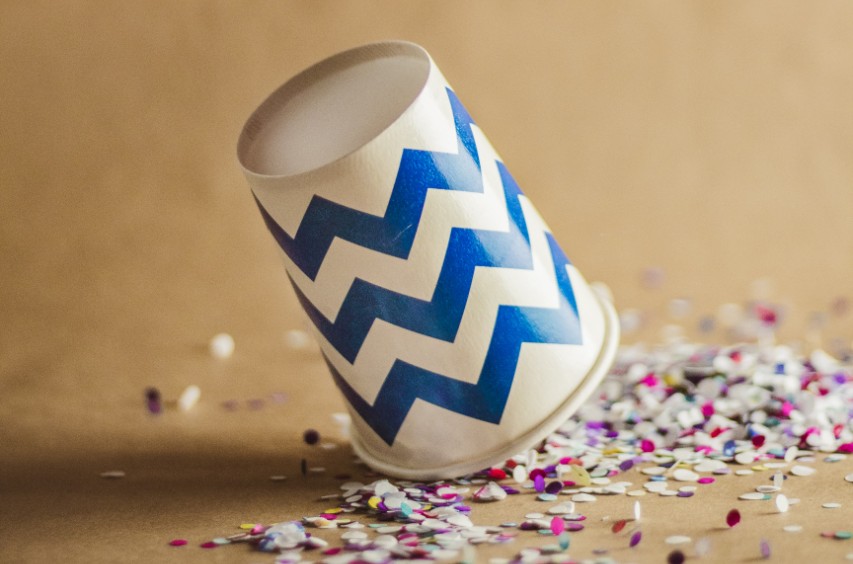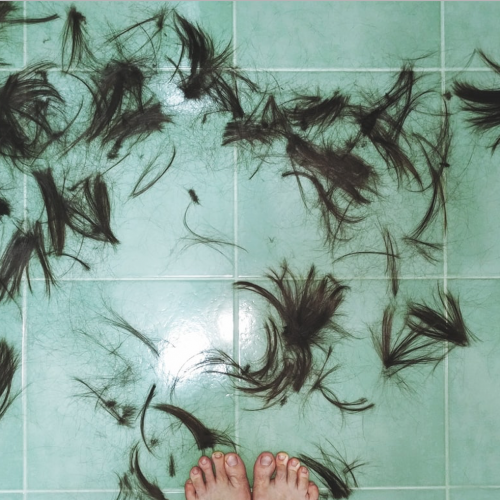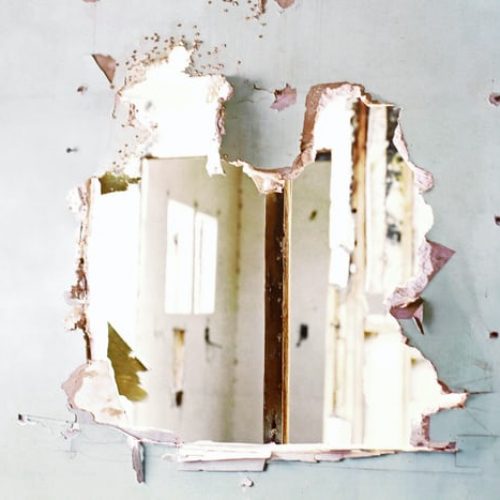“Take this baby back! Check again! Find the one which looks like me!” My mother waved meticulously manicured hands, dismissing me like an unwanted shrimp cocktail.
The story played for hilarity, and I always laughed along.
My mother, a single parent for almost a year at this point, presided nightly as the only adult at our dinner table, wearing full makeup and one of her silk bathrobes, like an aging starlet waiting to be called into wardrobe. My friend Evee, eight years old like me, waited for my reaction, before giving herself permission to join. Then we three kids guffawed together. My brother, five years older and six skinny feet tall, nearly tipped back in his chair, while Evee’s eyes flooded with water.
“The nurses concocted a hat! They used two Dixie cups and a discarded floral arrangement ribbon and stuck it to this one’s pinched, pink scalp!” My mother gestured in my direction. “Then they re-presented this new version of my alleged baby, thinking that pathetic hat would help!”
“Did the hat help?” Evee inquired. At this juncture in the story, everyone asked that question.
“No, don’t be ridiculous!” my mother exclaimed, as she launched into the final stretch. “Those nurses just kept insisting, ‘Ma’am, only one other baby has been born today, and his mother is keeping him!'”
No matter how often or under what circumstance the story was told, people laughed. Evee was no exception. She was a child, after all, and a dinner guest.
The next day, Evee and I hung out at her apartment after school. Pressed up against Mrs. Moschopoulos’s makeup table, Evee begged me to tell her mother—seated and applying eye-liner—the story of my birth. I obliged. Then a weird thing happened. Mrs. Moschopoulos didn’t laugh. I assumed that I either lacked my mother’s storytelling skill or that the Greek-born Mrs. Moschopoulos missed something in translation. But reflecting on all sides through the multiple mirrors, Mrs. Moschopoulos’s long dark face did not even approach a smile. It was the first time someone hadn’t laughed at the story of my birth.
*
Late in the evening on the day I was born, my father relieved my mother’s best friend Mrs. Fox at the hospital. It was his shift; his turn to attempt calming my insufficiently sedated mother.
“Not so bad,” my father purportedly offered. Perhaps his non-movie star likeness afforded my father a more forgiving lens through which to view me. Bald from the age of 19 and navigating a lifelong struggle with weight, my father had so much body hair that my mother nicknamed him “gorilla,” (though not in that affectionate way the little girl in Magilla Gorilla spoke about her beloved primate). As a condition of their marriage, she had insisted that he keep his torso, back, and upper arms clean-shaven. “Your father is at least expensively dressed and impeccably groomed,” my mother would say. “And that’s what saves him!”
That night in the hospital, my father reminded my mother, “how much could be accomplished through plastic surgery, should that become necessary down the road.” Apparently, this went a long way toward soothing her. Eventually, the medication put my mother to sleep.
*
As a child, I would dig out that picture of me in my bizarre Dixie cup crown from the bottom drawer in my brother’s room. Taken at close enough range to capture the surgical tape holding the headdress in place, I wondered if it hurt when the nurses later removed the paper cups, if the tape left marks in my flesh. Was the photo meant to capture my first day on earth or to record my first mortification? The first moment my exterior betrayed my interior. Or perhaps someone snapped the shot as a future indictment of my mother: the smoking gun, the cautionary talisman for me to heed in later years.
Growing up, I never questioned the tenets of our family lore: I was ugly at birth. Instead, I wondered what specifically made early me so hideous. Was my blotchy newborn pinkness really so aberrant? Was my dark tuft of hair truly more bestial than human? My half-closed eyes appeared intentional, as if I’d already set about trying to figure things out. My entirely closed mouth—neither pursed nor clenched—showed relaxed, inoffensive neutrality. And although my mother said my nose was “awful from the beginning,” I couldn’t construe anything crooked, twisted, or mangled. Who fantasizes about their child’s cosmetic surgery while still in the maternity ward? How many mothers try to exchange their babies? My infant likeness may not have checked the pretty and handsome boxes, but I struggled to uncover anything grotesque.
One evening, when I was about 11 years old, and my mother was out for dinner, I cut the photo into random jagged bits, puzzle pieces never to be reassembled. Stashing the scraps in the front pocket of my jeans, I slipped out the door of our apartment and tiptoed down the vegetable soup-scented hallway to the garbage room. There, I opened the chute to the incinerator and cast the remains to their fiery demise.
I had much more to discard, but it was a start.

J Brooke
J Brooke recently won the Nonfiction category in Columbia Journal’s 2020 Womxn’s History Month Special Issue, was a winner of Beyond Words Literary Magazine’s Dream Challenge, had a fiction essay in the top seven finalists for North American Review’s 2020 Kurt Vonnegut Prize. Publications include Columbia Journal, Harvard Review, The Southampton Review, Stonecoast Review, RFD Magazine, MomEgg Review, Hartskill Review, and Rubbertop Review. Eir MFA degree in Creative Writing is from the University of Southern Maine, where Brooke was the Nonfiction Editor for the Stonecoast Review. A graduate of Bryn Mawr College, e majored in creative writing at Haverford College. Brooke’s misspent youth was spent in advertising.





